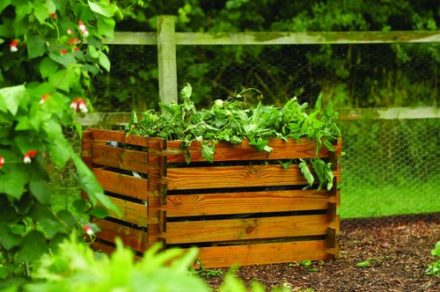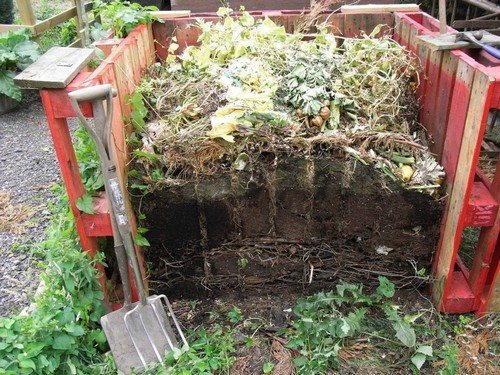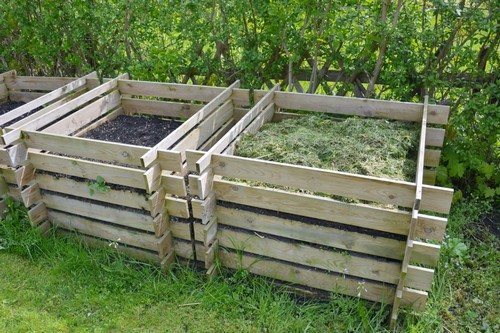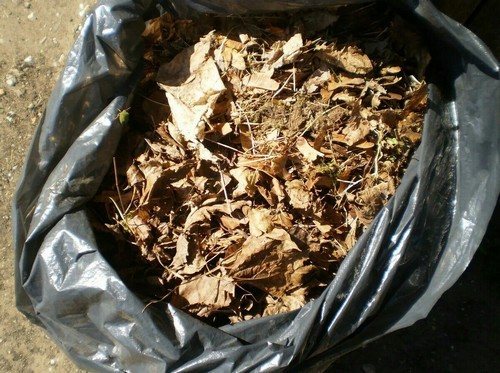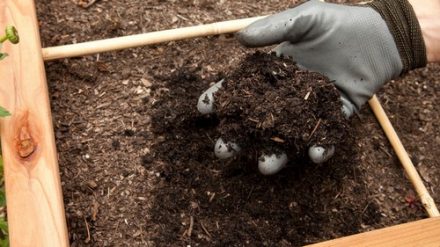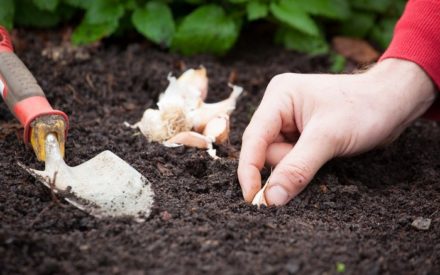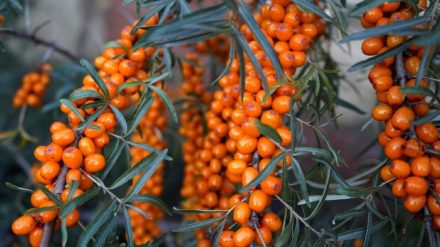Compost is a valuable fertilizer, the advantage of which is its natural composition. In the process of preparing compost mass, plant and food waste are also utilized, so that a double benefit is obtained. However, the traditional method of preparing compost takes a very long time. It takes from 3 months to 2 years to mature. The process can be accelerated by changing technology.
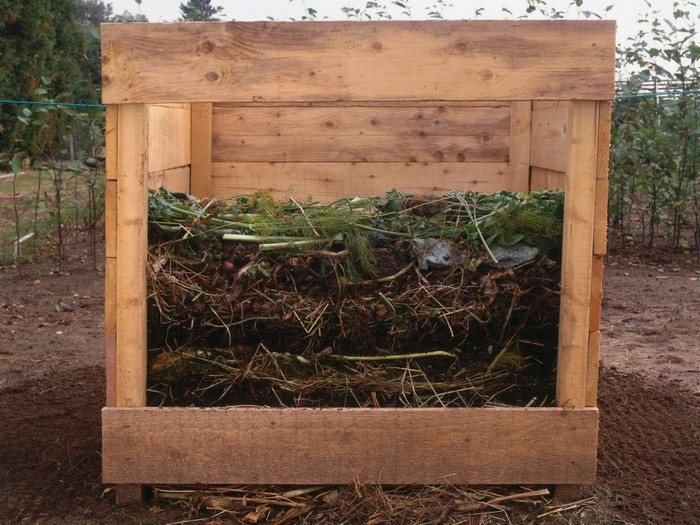
What you can and cannot put in your compost pile
Compost is usually made from nitrogen-rich plant residues and food waste. This list includes:
- mown grass;
- fallen leaves;
- plant tops;
- rotten vegetables and fruits;
- eggshell;
- sawdust;
- peat.
Chicken manure and manure are also added to the compost mixture. You can put twigs and branches after pruning and straw into the compost. Since these materials are low in nitrogen content, they are used in smaller quantities.
Non-decomposing organic residues (fat, lard, bones), synthetic waste, glass, plastic, and citrus peels are completely unsuitable as raw materials for a compost heap. It is better not to use diseased plants and weeds with seeds for this purpose. Strong-smelling foods that may attract flies should also not be put into compost.
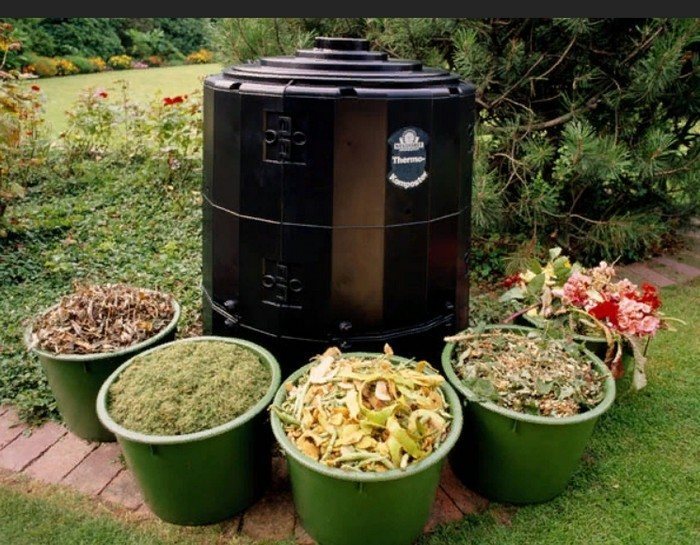
Conditions required for compost to mature
The finer the material fraction, the faster the compost will mature.In addition, for the compost mass to mature, several more conditions must be met. Organics must be laid in layers. Drainage from chopped branches is organized from below. Then other materials are laid in layers.
Dry and wet waste should be alternated. For example, put straw or hay first, then freshly cut grass, tops or manure. Further layers alternate according to the same principle. The total height of the compost heap should not be higher than 1.5 m. The organic matter is covered with a layer of fertile soil on top.
Periodically, the waste is moistened if the weather is dry. Composting organic materials requires heat, air and moisture. For the winter, the pile is covered with a tarpaulin or several layers of film. The cover will prevent the leaching of valuable substances from the compost and protect the upper layers from freezing.
Measuring the temperature inside the compost heap will help determine whether decomposition processes are proceeding correctly. If the indicator reaches 60 °C, then the process is active. High heating of organic matter not only contributes to the rapid preparation of compost, but also destroys all kinds of pest larvae and pathogens of various infections.
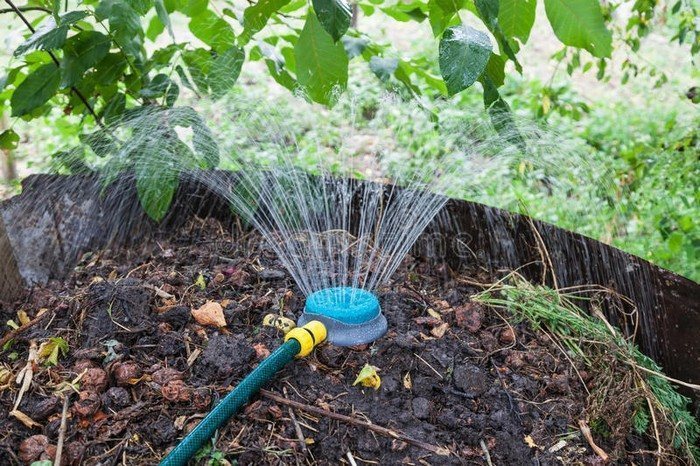
Additives for accelerated decomposition of organic matter
The ripening of compost can really be accelerated if special additives are used. For this purpose you can use:
- Special accelerator drugs that have a biological basis. Such products as “BioMaster” and “Compostin” contribute to the speedy decomposition of compost. Both drugs contain enzymes, active organic substances, and trace elements.
- Biodestructors. These are the so-called Em-drugs, including “Baikal EM”, “Vostok EM”, “Vozrozhdenie”.Biodestructors contribute to the accelerated decomposition of organic matter through its processing by specific bacteria.
- Folk remedies. The ripening of compost is facilitated by pouring organic waste with herbal infusions or a yeast solution. You can additionally add earthworms and slugs collected from the area to the compost heap.
To ensure that organic matter rots faster, the pile is watered as often as possible and its contents are turned. As a result of the above actions, it will be possible to ensure that the compost matures in about 1-1.5 months and can be used already this season as a fertilizer for the garden.
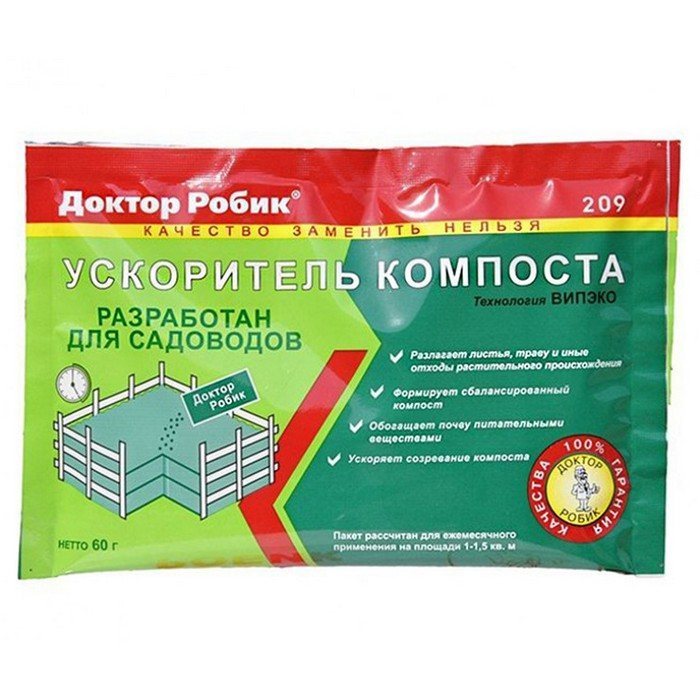
In order for the compost to ripen faster, it is necessary to comply with all the necessary conditions for this - lay the material in layers, keep the organic matter moist, and pre-shred the waste. Special formulations will help speed up the process even more. A solution prepared on their basis is poured over the layers of organic matter during placement in the composter.


